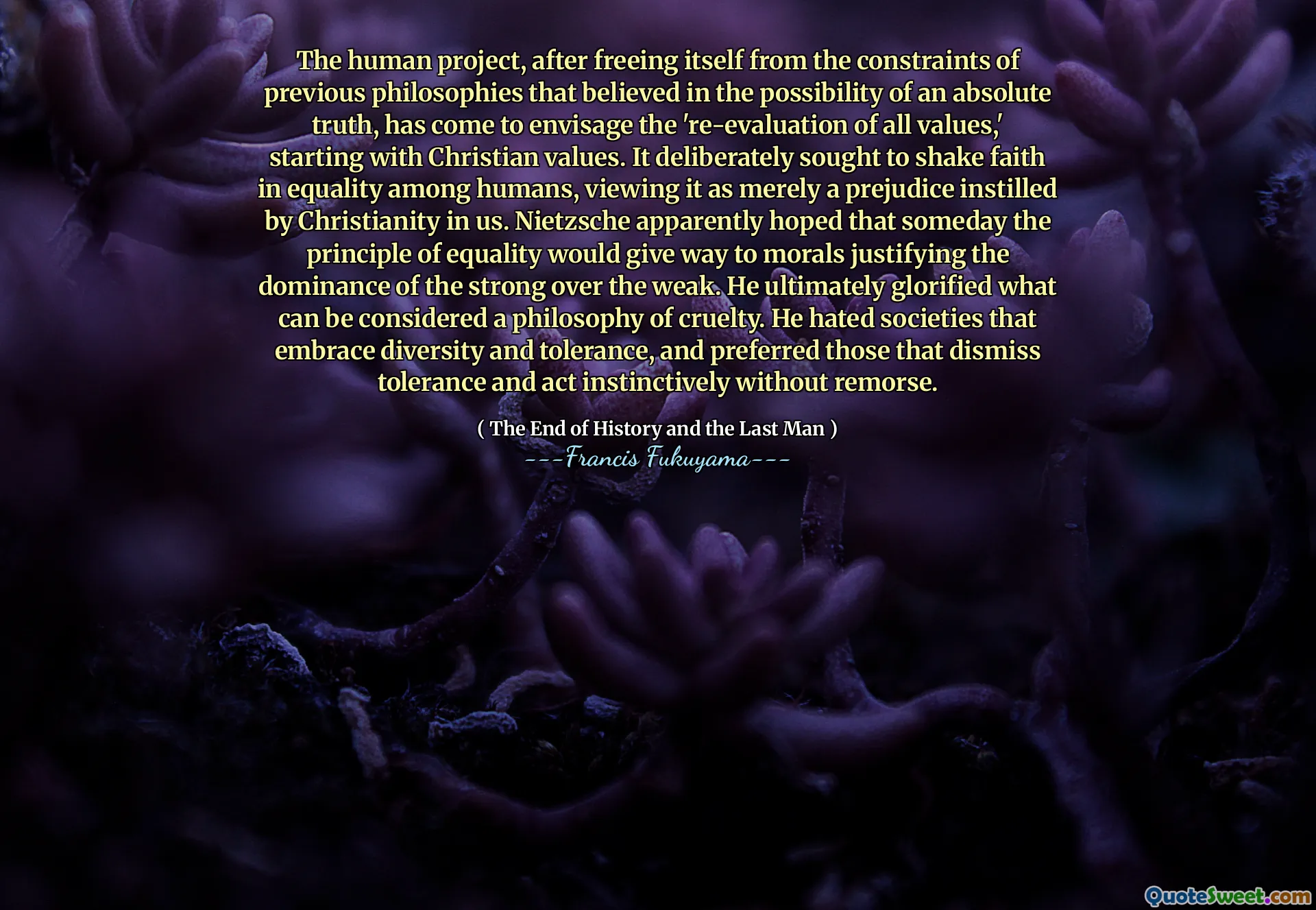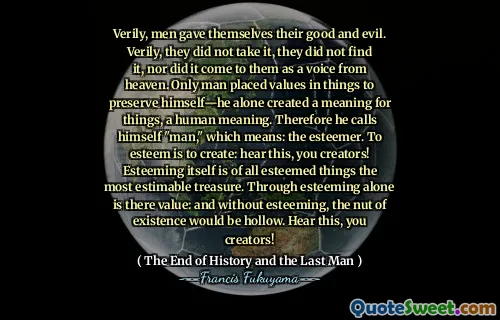
The human project, after freeing itself from the constraints of previous philosophies that believed in the possibility of an absolute truth, has come to envisage the 're-evaluation of all values,' starting with Christian values. It deliberately sought to shake faith in equality among humans, viewing it as merely a prejudice instilled by Christianity in us. Nietzsche apparently hoped that someday the principle of equality would give way to morals justifying the dominance of the strong over the weak. He ultimately glorified what can be considered a philosophy of cruelty. He hated societies that embrace diversity and tolerance, and preferred those that dismiss tolerance and act instinctively without remorse.
This quote offers a profound critique of Nietzsche's philosophy, emphasizing a shift away from traditional moral values rooted in religion and notions of equality. It illustrates how, according to the perspective presented, Nietzsche's ideas challenge the Enlightenment ideals of universal human dignity and equal rights. Instead, the quote suggests that Nietzsche's worldview tends toward a brutal aristocratic or possibly even nihilistic stance, valorizing strength, dominance, and the rejection of Societal tolerance and compassion. The discussion evokes ongoing debates about morality, power, and the potential dangers of moral relativism. It prompts reflection on how philosophical shifts influence social structures and human behavior, raising questions about the foundation of societal values—whether they are intrinsic or imposed by historical and cultural contexts. Importantly, it also touches on the tension between what is considered morally virtuous and what might be driven by instinct or power motives, urging us to consider the ethical implications of abandoning established moral frameworks in favor of a more primal or self-serving perspective. This contemplation is relevant to understanding modern debates over morality, authority, and social cohesion, especially in contexts where notions of strength or weakness are politicized or amplified.







